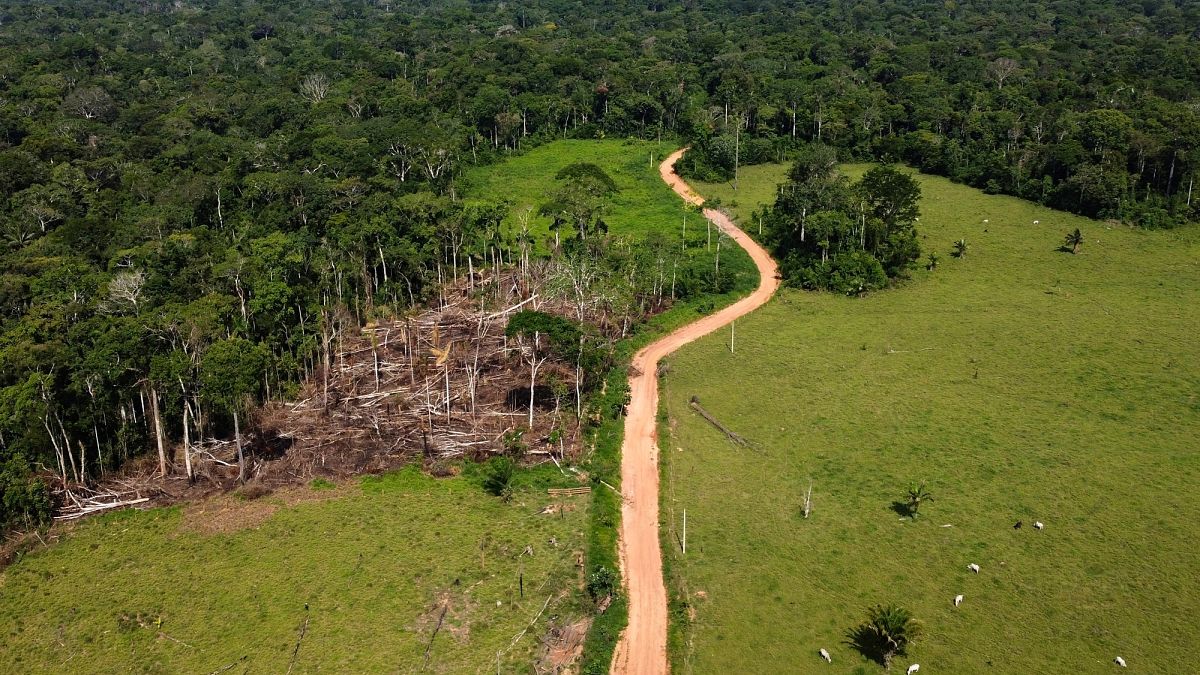Proposed changes to the EU deforestation law supported by a majority of member states will boost the potential for illegal trade of Russian and Belarusian timber, according to an NGO which has conducted an investigation into the trade.
In May 18 EU member states sent a letter to the European Commission proposing to simplify the EU Deforestation Regulation, the bloc’s legislation that aims to reduce the EU’s impact on global deforestation.
The law entered into force in June 2023 and classifies countries according to their risk of deforestation in the production of seven commodities: cattle, cocoa, coffee, oil palm, rubber, soya, and wood.
The European Commission decided to postpone its implementation to 30 December 2025 for large and medium-sized companies, and to 30 June 2026 for micro and small companies, following pressure from member states.
The regulation boosts controls over illegal imports of timber by introducing more mandatory border checks and compulsory geolocation of timber.
“Geolocation is a very powerful tool because it can be used to debunk fake harvest and false origin claims,” Tara Ganesh, lead timber expert at the NGO Earthsight told Euronews in an interview.
The ‘No Risk’ category
“The way the current proposal is worded, it would strip away a key part of the law, the requirement for geolocation in certain countries. For so-called ‘no-risk’ countries, they would be exempt from geolocation requirements, and there would also be no obligation for authorities to carry out a minimum number of checks on those countries,” Ganesh said.
The EU deforestation law categorises countries from low to high risk of deforestation.
Based on the risk category, different rules apply. For instance, for a high risk category, more layers of control are mandatory.
In the draft reform, member states want to introduce a new ‘no risk’ category with lighter rules, which Ganesh claims would be open to abuse by those seeking to circumvent sanctions by importing timber from Russia and Belarus.
“Several NGOs around the world have shown that wood, not just from Russia, but also from other high-risk tropical countries and deforestation hotspots, is regularly laundered through countries like China. Essentially, what we are calling for is for the European Commission to firmly reject the zero-risk proposal from the outset and to implement the law as it stands by the end of this year,” Ganesh said.
EU countries gaining more from the illegal imports
Ganesh said that eight of the countries pushing for these amendments already account for 67% of the illegal timber market in the EU currently subjected to sanctions.
“Incidentally, many of the member states calling for [simplifying the legislation] are also among those receiving some of the highest volumes of conflict plywood we have been documenting. In particular, eight of the top ten EU importers of conflict plywood, according to the most recent data, are among the member states pushing for the reform,” Ganesh told Euronews.
Russia is among the largest producers of wood worldwide, and its birch plywood is used for a range of purposes including much furniture.
Following Russia’s invasion of Ukraine, the EU imposed sanctions on wood products on Russia and Belarus.
In January Earthsight published the results of an undercover investigation, which claimed that the EU systematically imported more than €1.5 billion of illegal Russian and Belarusian birch plywood since sanctions came into effect in July 2022.
In updated research published in July, the NGO claimed that further €273 million’s worth of illegal plywood was imported between November 2024 and April 2025, and said the circumvention is still ongoing.
“We saw that as soon as the sanctions took effect, the flow of timber from Russia stopped or declined drastically, and at the same time, imports from third countries rose,” Ganesh said, earmarking China, Georgia, Kazakhstan and Turkey as among countries from which exports had increased significantly over that time.
They are able to get fake certificates, even from big labelling companies, the investigation claims.
“Our report was all about showing how companies in these third countries are simply sticking new labels and new packaging on Russian-manufactured goods, then sending them to the EU with documents originating from those third countries. For the EU importer, they are able to safely claim that the products are manufactured, for instance, in China,” she added.
Euronews contacted the European Commission for comment on the investigation and its reactions.
Countries seeking the simplification of the Deforestation Regulation are Austria, Bulgaria, Croatia, the Czech Republic, Estonia, Finland, Hungary, Ireland, Italy, Latvia, Lithuania, Luxembourg, Poland, Portugal, Romania, Slovakia, Slovenia and Sweden.
Read the full article here


